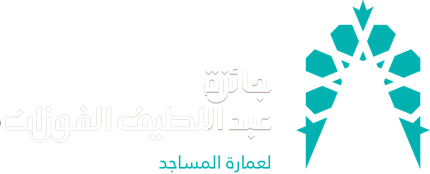ABDULLAH, F. H., MAJID, N. H. A. & OTHMAN, R. 2016. Defining Issue of Thermal Comfort Control through Urban Mosque Façade Design. Procedia - Social and Behavioral Sciences, 234, 416-423.
AL-TAMIMI, N., QAHTAN, A. & ABUELZEIN, O. 2020. Rear zone for energy efficiency in large mosques in Saudi Arabia. Energy and Buildings, 223, 110148.
AL RASBI, H. & GADI, M. 2021. Energy modelling of traditional and contemporary mosque buildings in Oman. Buildings, 11, 314.
AL TOUMA, A. & OUAHRANI, D. Enhanced thermal performance of mosques in Qatar. IOP Conference Series: Earth and Environmental Science, 2017. IOP Publishing, 012012.
ALMASRI, R. A., AL-ANAZI, M. A., ALMARSHOUD, A., ALSHITAWI, M. S. & ABU-HAMDEH, N. H. 2023. Investigating energy efficiency and solar energy in Saudi mosques to achieve zero energy or zero bill. Alexandria Engineering Journal, 68, 263-280.
ATMACA, A. & GEDIK, G. Z. 2019. Evaluation of mosques in terms of thermal comfort and energy consumption in a temperate-humid climate. Energy and Buildings, 195, 195-204.
ATMACA, A. B., GEDIK, G. Z., WAGNER, A. & SCHWEIKER, M. 2024. Comparison of different thermal comfort models: mosque and church cases. Architectural Science Review, 67, 357-370.
ATMACA, A. B., ZORER GEDIK, G. & WAGNER, A. 2021. Determination of optimum envelope of religious buildings in terms of thermal comfort and energy consumption: Mosque cases. Energies, 14, 6597.
AZMI, N. A., ARıCı, M. & BAHARUN, A. 2021. A review on the factors influencing energy efficiency of mosque buildings. Journal of cleaner production, 292, 126010.
AZMI, N. A., BAHARUN, A., ARıCı, M. & IBRAHIM, S. H. 2023. Improving thermal comfort in mosques of hot-humid climates through passive and low-energy design strategies. Frontiers of Architectural Research, 12, 361-385.
AZMI, N. A. & IBRAHIM, S. H. 2020. A comprehensive review on thermal performance and envelope thermal design of mosque buildings. Building and Environment, 185, 107305.
BOYACK, K. W., KLAVANS, R. & BÖRNER, K. 2005. Mapping the backbone of science. Scientometrics, 64, 351-374.
BUDAIWI, I. 2011. Envelope thermal design for energy savings in mosques in hot-humid climate. Journal of Building Performance Simulation, 4, 49-61.
DILER, Y., TURHAN, C., ARSAN, Z. D. & AKKURT, G. G. 2021. Thermal comfort analysis of historical mosques. Case study: The Ulu mosque, Manisa, Turkey. Energy and Buildings, 252, 111441.
EL FOUIH, Y., ALLOUHI, A., ABDELMAJID, J., KOUSKSOU, T. & MOURAD, Y. 2020. Post energy audit of two mosques as a case study of intermittent occupancy buildings: Toward more sustainable mosques. Sustainability, 12, 10111.
GÜZER, A. 2009. Modernizmin Gelenekle Uzlaşma Çabası Olarak Cami Mimarlığı. Mimarlık.
KURNAZ, Ş. 2013. Camilerin toplumsal kimlik ve değerlerin oluşmasındaki rolü. DEÜ Sosyal Bilimleri Enstitüsü.
LAGHMICH, N., KHOUYA, A., ROMANI, Z. & DRAOUI, A. The reduction of energy requirement by adapting the mosques building envelope for the six climatic zones of Morocco. AIP Conference Proceedings, 2018. AIP Publishing.
MCBURNEY, M. K. & NOVAK, P. L. What is bibliometrics and why should you care? Proceedings. IEEE international professional communication conference, 2002. IEEE, 108-114.
PECHLANER, H., ZEHRER, A., MATZLER, K. & ABFALTER, D. 2004. A ranking of international tourism and hospitality journals. Journal of Travel Research, 42, 328-332.
PRITCHARD, A. 1969. Statistical bibliography or bibliometrics. Journal of documentation, 25, 348.
RAHMAN, M. F. B. A., MASTUKI, N. A. & YUSOF, S. N. S. 2015. Performance Measurement Model of Mosques. Procedia Economics and Finance, 31, 26-35.
SHOHAN, A. A. A., AL-KHATRI, H., BINDAJAM, A. A. & GADI, M. B. 2021. Solar gain influence on the thermal and energy performance of existing mosque buildings in the hot-arid climate of Riyadh city. Sustainability, 13, 3332.
SHOHAN, A. A. A. & GADI, M. B. 2020. Evaluation of thermal and energy performance in mosque buildings for current situation (simulation study) in mountainous climate of Abha City. Sustainability, 12, 4014.
TAUFAN, A., ZAKI, S. A., TUCK, N. W., RIJAL, H. B., KHALID, W. & OTHMAN, N. A. 2025. Thermal comfort and ventilation performance in an air-conditioned mosque in tropical climates of Malaysia. Advances in Building Energy Research, 1-42.
TAUFAN, A., ZAKI, S. A., TUCK, N. W., SINGH, M. K. & RIJAL, H. B. 2023. Energy-efficient retrofitting strategies in mosque buildings: A review. Renewable and Sustainable Energy Reviews, 183, 113479.
YUSOFF, W. F. M. 2021. Indoor thermal comfort in modern mosque of tropical climate. ICONARP International Journal of Architecture and Planning, 9, 720-741.
YÜKSEL, A., ARıCı, M., KRAJČÍK, M., CIVAN, M. & KARABAY, H. 2022. Energy consumption, thermal comfort, and indoor air quality in mosques: Impact of Covid-19 measures. Journal of Cleaner Production, 354, 131726.

